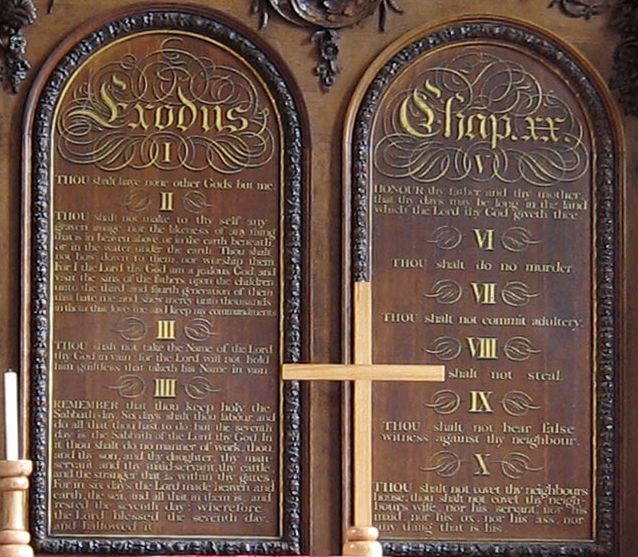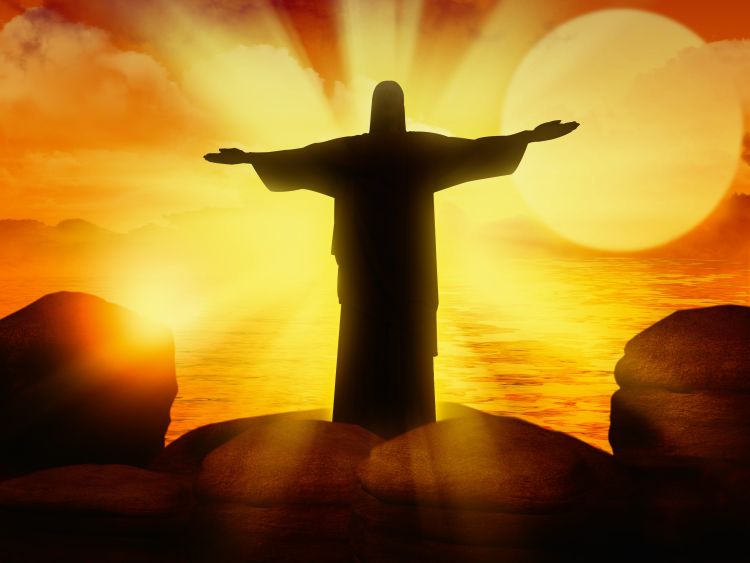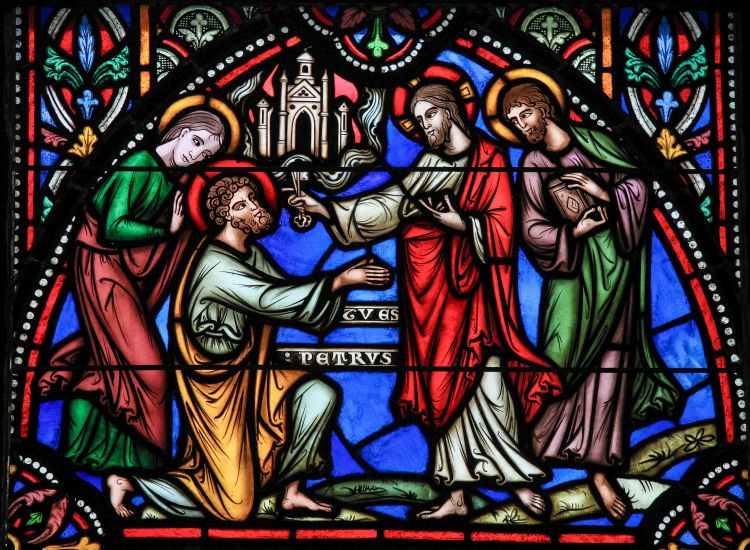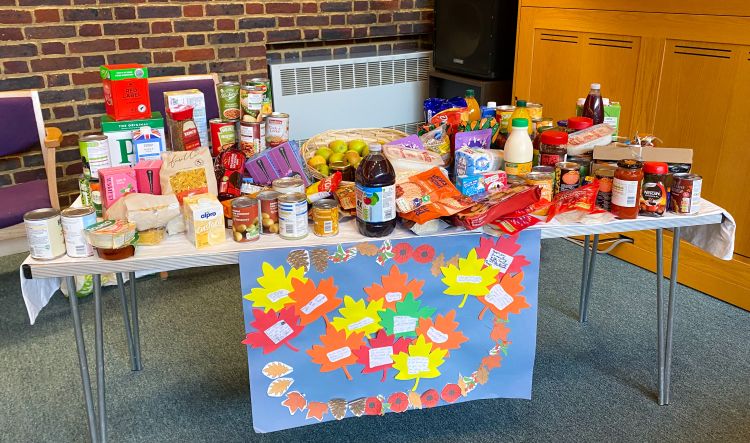
Hello everyone,
Welcome to the latest issue of our church newsletter. Our newsletter is sent out regularly to share reflections from services, Bible readings and church news to our church family. You can find previous issues on our church website here.
We would love to hear from you and are always looking for uplifting and encouraging content to share in future issues of this newsletter. If you have any ideas or content that we can share, please do email them to Louise (publicity@christchurchuxbridge.org.uk)
Opening Prayer
God of all grace,
I bring you the past week, and take stock of everything I have experienced:
The challenges, the joys, the moments of mundanity, and the things I have learned.
I bring you the moments from this week of which I am not so proud:
The hurtful words I have said, and the uplifting ones I have left unsaid.
I bring you my own carelessness, my short temper, my selfishness
And I ask your forgiveness and renewal.
I place this coming week into your hands, and ask for your strength
For every challenge or tough decision that comes my way.
I ask for your courage
For every opportunity that comes my way.
I ask that you will strengthen me to use the gifts you have given me.
I ask for your help to be the hands, feet and voice of Jesus.
I am never alone,
Every step of this journey, you walk alongside me:
My companion, my friend, my guide.
Even when it’s difficult to feel your presence with me, you are there,
Rejoicing with me, weeping with me, guiding me along the path.
May I find all the courage that I need from this sure knowledge.
In Jesus’ name, Amen.
(Adapted from The Vine)
Reflection from 20 August
Readings – Matthew 15: 21-28, Isaiah 56: 1-8 and Romans 11: 1-2, 29-32
I always enjoy looking at the passages that Paul writes but I don’t always understand them. Anybody here understand them all the time? No, it’s one of those things. I had a wonderful time a few years ago, I went up to Northwood to the London Bible College and they were running evening classes on Paul’s letters and the guy who was leading the lectures said, “If you can understand all of Paul, you don’t need to do your university degree.”
So what are the rules? What are the rewards that are being offered? It’s all about believing and God’s promise of a reward of sorts. Isaiah 56 says to maintain justice and do what is right. That’s a good rule to have. We’ll have a parliament and members of parliament and have them set up laws that we need to keep. Doing what is right.

“Because soon my salvation will come. My deliverance is sealed.” That’s amazing. It’s coming soon. Now bearing in mind that this was written in Isaiah’s time, which was a while ago, soon is a relative thing. Soon for God, says that one day is as a thousand years and a thousand years is as one day or something like that. It’s just a time space.
If you hold fast and keep the Sabbath, not profaning it and refraining from doing any evil, you’ll be all right. You don’t have to obey all the other 365 rules that they’ve got earlier on in the Bible. You’ve just got to do one thing, look to and respect God and listen to him.
And the foreigners, well, they’re allowed to join in too. In the book of Exodus and Leviticus, I think he actually says sometimes, if the foreigner within your gate wants to listen to these rules and obey them, then they should be treated as you are. The Lord will not separate the foreigners from his people.
And then we have the eunuchs who were unable to create children. But God says, if you believe, I will give you a house and a monument and a name. Because that’s what they’re missing out, is passing on their name.
Now we’ve done a bit of family tree research in our family and we’ve gone back about 200 years. We’re all Evanses, that’s the problem. At some point we probably came from Wales. We get to a very sticky point, the last Evans that we found going back that way. His name was either John or Jack. But if you’re living in certain parts of London where the Welsh moved to at that time, there’s hundreds and hundreds of Evanses. And there’s quite a lot of people who are called John or Jack. just lost the trail.
I expect we could do DNA and all that jazz, but I think we’re probably gonna go as far as we can go down that line. But if you’ve got a name that you can pass on to your family and their family and their family, now we’re all right.
I will give you a name better than sons and daughters, an everlasting name, not to be cut off. Any foreigners who join themselves to the Lord who minister, who love the name of the Lord, all of those who keep all those rules, the reward says I will bring them to my holy mountain and make them joyful in my house of prayer.
You’re welcome to come to God’s house. As the hymn says, “all are welcome, all are welcome, all are welcome in this place.” We encourage people to come and meet with Jesus, and we still do.
Further on in Romans, we get something very, very similar. Somebody asked Paul, “Will God reject his people?” He says, “Well, although I’m an Israelite, a descendant of Abraham, a member of the tribe of Benjamin, God has not rejected his people who he foreknew.”
God already knew, this is what is mind-blowing, way back at the time of Abraham, in fact, probably before Abraham, what things were going to happen. And he would see where people were going and what would happen to them, but he’s got to allow for the fact that we can disappoint him and go off in an opposite direction.
“They’ve killed your prophets, they’ve demolished the altar… I’m the only one left,” says Elijah. Well, he wasn’t quite right even when he said it, but he’s certainly not right now. There is a remnant chosen by grace. And if it’s by grace, it’s no longer on the basis of work otherwise, it wouldn’t be grace anymore.
Grace is when God gives us the things we don’t deserve. And he does it because we love him and he loves us. And as a result of that, he’s also able to extend that grace to people who are not descendants of Abraham.

When Jesus was sent, he was only sent, he said, to speak to the lost of Israel. But when he sent his disciples out, he sent them to the lost of everywhere. Everybody needed to hear the message that Jesus could forgive sins and bring us to a place of grace and mercy.
The kindness and the severity of God. Severity towards those who have fallen, but God’s kindness, provided you continue in his kindness. Otherwise, you will also be cut off.
God likes to be invited to be part of our lives. He holds out a hand to welcome us. He holds out Jesus’ hands to welcome us. We don’t have to take it. But that is the only way that he can draw us into his family, to make us one with him, to be together with him.
The gifts and the calling of God are irrevocable. “You were once disobedient to God, but you’ve now received mercy because of the disobedience of those in the past. They have been disobedient in order that by the mercy shown to you, they too may now receive mercy. God has imprisoned all in disobedience, that he may be merciful to all.”
How amazing. God just wants to be our Father and our friend and gave us a redeemer and gave us a life to look forward to.
Lilian Evans
Reflection from 27 August
Readings – Matthew 16: 13-20 and Romans 12: 1-8
I wonder if football is your preferred sport, or maybe athletics, or maybe netball. Well, we’ve been spoiled for choice for world level tournaments and championships in recent weeks, with all the hullabaloo that comes with every one of them. It’s interesting, isn’t it, though, that netball is hardly ever covered by the main TV channels in quite the way that we get so much around football and athletics. But this year was different. And why? Because England was in the final for the first time ever. Perhaps even the most unpatriotic of us feel just a little sense of pride at the achievements of the national team, whatever the sport.

Issues of identity and expressions of it are important to each one of us. And they were important, too, for the disciples who were confronted with those two questions from Jesus: who do people say that the Son of Man is? And then, who do you say that I am?
Jesus asked those questions in Caesarea Philippi, a place way up in the north of Palestine, away from all the bustle of the crowds, a place where he could be alone with the disciples. It seems that he wanted to see if they had understood who and what he was before he set his face to Jerusalem and the suffering that he knew awaited him there.
Who do people say that the Son of Man is, he asked. And they told Jesus that some people have seen him in the context of history, equating him with people from the past, Elijah, Jeremiah, or another of the prophets. And in one sense, the past can be quite a comfortable place. It’s containable. It’s understood because it has already happened.
Now, I wonder if you, like me, have a special box somewhere at home where you keep your treasures. It might contain photos, or letters, or a wedding ring from a grandparent, a school exercise book, or other significant objects. And we might very rarely take that box out and look at those objects. And yet, we hold on to them with fierce determination. Locating Jesus back in religious history is a bit like that, a precious treasure that we think we’ve got nicely contained in a box.
Now, we know about plenty of historical figures, and Jesus is one of them. But he can never be just that. The answer that they gave to Jesus’s question, who do people say that the Son of Man is, is actually as much about the future as it is about the past. Because yes, they mention Elijah, and Jeremiah, and the prophets. And they also named John the Baptist, the one who looked ahead, the one who prepared the way for the Messiah to come. These were all, in fact, figures tied up with the end time, the conclusion of human history, the fulfilment of the kingdom of God.
I remember having my eyes opened by reading a novel about life in a Jamaican shanty town, where people scraped together a meagre life, eking out an existence from the rubbish other people had discarded. The novel is called The Children of Sisyphus, and it’s by Orlando Patterson.
Sisyphus was a king, the king of Corinth in Greek mythology, and he was a rather selfish and deceitful king. So the father of the gods, Zeus, punished Sisyphus by forcing him eternally to push a boulder up a hill. And as soon as it reached the top, it would roll back down again, and he’d have to start all over again for eternity. In this novel, the dwellers in this Jamaican shanty town are called The Children of Sisyphus, because they were similarly trapped in a never-ending cycle of misery.
Theirs was a strong society, and amongst this society were a group of men who formed a Rastafarian brotherhood. The only thing that kept them from despair was a powerful sense of hope that they were about to be rescued from all of the poverty and the filth of their lives into their rightful place in the sun, the land of Ethiopia in their belief. And they even called their current existence Babylon, the place of exile.
Expectations grew and grew through the pages of the novel until the day came when they gathered at the edge of the sea there on the beach, straining their eyes at the horizon. They had a strong and fervent expectation that a ship was coming for them and that their exile would be at an end. And there they were at fever pitch, watching, straining. But nothing happened. They had to turn around. They had to return to their miserable existence.
So many people live like that, believing their current existence to be unimportant in the face of what is to come. Keeping alive such a hope can be essential for survival. But how many times have people been desperately disappointed like they were in that novel when their hopes of deliverance come to nothing?
If we spend all of our energy on hoping for an end to our exile, if we believe all the time that where we are here and now is not really our true destiny, is not really as good as it could be, then our present life can be very painful and miserable and unfulfilled.
Now, I find it interesting that Jesus reacted to the disciples answer to his first question, who do people say that the Son of Man is, simply by posing another question: who do you say that I am? He didn’t actually tell them whether they were right or wrong with their answer to the first question. And that suggests to me that there could be at least an element of truth in their first answer.
So part of Jesus’s identity is in the past, in our treasure box. And part of it is in our hope for the future.
The church has debated, as it does, long and acrimoniously, over the centuries, about the commission given here in Matthew’s gospel to Peter: “You are Peter, and on this rock, I will build my church.”

It may have been a separate saying, and some scholars doubt its authenticity altogether. There was no church, of course, in Jesus’ time. So how could he be speaking about one in this saying? We’re not going to get into that argument here and now. You can look all that up for yourselves when you go home. Whatever we think, though, about this statement, “You are Peter, and on this rock, I will build my church,” it seems clear that Peter was not just given a job to do as a result of his confession about Jesus’ identity, but it actually changed the essence of who he really was.
This was a life-changing moment. And Jesus challenges each new generation with that question, “Who do you say that I am?”
Who do we say that Jesus is? Is he an irrelevance, boxed neatly away in history, not likely to bring about any change to our living, our way of working? Or is he some vague hope for the future when hopes will be realised and the exile of our present life will be brought to an end?
Well, in either place, Jesus doesn’t cause us too much of a challenge in the way we live in the here and now. So the question that surely confronts us is whether Jesus can, in fact, be a present reality today so that people can state with confidence, as Peter did, he is the Messiah, the Son of the living God, and that we can state that in the present existence of our world today. If that is our view, then it has enormous implications for us, as it did for the disciples.
It seems to me that this is where today’s passage from Paul’s letter to the Romans can help, because Paul says, “Do not be conformed to this world, but be transformed by the renewing of your minds so that you may discern what is the will of God, what is good and acceptable and perfect.”
We all know that there are places and situations in this world of ours that rapidly get labelled as God-forsaken. Think of people terrorised by brutal regimes so that they live in fear for their lives. Think of people who have suffered accidents and illnesses and abuse and psychological damage and difficult relationships and debt or feelings of just being worthless. Think of people who are always on the wrong end of other people’s decisions pushed about by corrupt policies.
If our mission is not to be conformed to this world, then surely we have to look twice at such situations, because no person, no place can ever be called God-forsaken. Our identity as Christians compels us to discern God in them. Even in the depths of despair in that shanty town in Jamaica from that novel, there were people who cared about one another, people who shared their grief and their hope, people who knew what strong community meant. And it’s when we look at the world in order to discern the will of God that we find things may not be as they first seem.
Paul then writes about diversity. As in one body, we have many members, and not all the members have the same function. So we who are many are the body of Christ. And individually, we are members one of another. And whether we’re talking about culture or skills or opinions or gender or enthusiasms or background, we are fundamentally not the same. And that diversity is one of the most wondrous gifts of God.

Paul was talking about taking the world as it is, not being dragged into the worldly way of looking at it, though, where people are seeking to assert their own importance above that of someone else. It is about affirming the hope and the love that are in the world and finding the presence of God. It’s about discerning the gifts that we are individually given and using them in the service of God in the world.
“Who do people say that the Son of Man is?” asked Jesus of his disciples. For some people then, as now, he belonged in the dusty past. For others, he was all about some vague mysterious hope for the future. But for Peter, the answer was clear: “You are the Messiah, the Son of the living God.”
The implications of that reply reach right into our very essence, as they did for Peter. They inform and they challenge our identity so that we too can follow the path of discipleship to which we are called. That’s a far deeper sense of identity than anything expressed through the waving of national flags at world championships.
We can be sure of the guidance of God with each one of us as we each respond to that question asked by Jesus. “Who do you say that I am?”
God, help us all. Amen.
Revd Dr Claire Potter
Readings for 3 September
Matthew 16: 21-28
Jesus Predicts His Death
21 From that time on Jesus began to explain to his disciples that he must go to Jerusalem and suffer many things at the hands of the elders, the chief priests and the teachers of the law, and that he must be killed and on the third day be raised to life.
22 Peter took him aside and began to rebuke him. “Never, Lord!” he said. “This shall never happen to you!”
23 Jesus turned and said to Peter, “Get behind me, Satan! You are a stumbling block to me; you do not have in mind the concerns of God, but merely human concerns.”
24 Then Jesus said to his disciples, “Whoever wants to be my disciple must deny themselves and take up their cross and follow me. 25 For whoever wants to save their life will lose it, but whoever loses their life for me will find it. 26 What good will it be for someone to gain the whole world, yet forfeit their soul? Or what can anyone give in exchange for their soul? 27 For the Son of Man is going to come in his Father’s glory with his angels, and then he will reward each person according to what they have done.
28 “Truly I tell you, some who are standing here will not taste death before they see the Son of Man coming in his kingdom.”
Further readings from the lectionary this week are as follows:
- Jeremiah 15: 15-21
- Psalm 26: 1-8
- Romans 12: 9-21
Our worship
We meet at 11am for our Sunday services, which are also live-streamed on our Facebook page. If you wish to view our services online, you can find them at www.facebook.com/christchurchuxbridge. You do not have to be a Facebook user to watch them – our services are publicly viewable. You can also view a recent service on our church website. Our service this week will be the fourth in our ‘Frontline Sundays’ series and will be led by Christ Church member, Stephanie Marr. You can find the order of service here.
If you are unable to join us in person or online for our Sunday services, but would like to receive a recording of them on a memory stick to watch at home, please let us know.
Forthcoming services
3 September – Christ Church worship group (Stephanie Marr) – Frontline Sundays 4
10 September – Christ Church worship group (Louise George) – Frontline Sundays 5
17 September – Graham Hinton (URC lay preacher and Christ Church member) – Harvest and parade service
24 September – Revd Dr Leao Neto (Methodist minister) – Holy Communion
Harvest Service Foodbank donations
We will be collecting donations for the local foodbank at our harvest service on 17 September. If you would like to bring a donation for the foodbank, the following items are those they are currently in most need of:
- Carrier bags
- All and any toiletries
- Washing up liquid
- Jam/honey
- Rice pudding
- Custard
- Tinned fruit
- Sugar (500g or 1kg)
- Microwave rice packets
- Tinned fish
- Pasta sauce
- Tinned potatoes
- Instant coffee
- Long life milk (ideally full fat or semi skimmed)
- Long life fruit juice
- 1l fruit squash
- Biscuits
- Dried noodles
- Tinned spaghetti
- Long grain rice

Church charity news
Table-top sale – Saturday 23rd September, 10am – 3pm
There will be a table-top sale in aid of our church charity, Communicare Counselling Service, on Saturday 23rd September 2023, 10 am to 3pm.
Trestle tables will cost £10 each. I shall be selling my goods in aid of Christ Church funds. If you wish to book a table, please contact me on 07810 433986 or the church office.
Jean George
You can find more details about Communicare Counselling Service, our church charity for 2023 at:
https://christchurchuxbridge.org.uk/activities/churchcharity2023
Dates for your diary
10 September – Congregational meeting
23 September – Table-top sale in aid of Communicare Counselling Service
30 September – URC Learning Hub (focusing on small groups and intentional relationships)
14 October – Quiz night in aid of Communicare Counselling Service
19 November – Congregational meeting
Children’s Corner

Praying for other churches
This week we hold the following churches in our prayers:
- Pinner Methodist church
- Ickenham URC
Closing prayer
God of today and of all eternity,
we thank you for the promise of eternal life,
revealed and won by your Son Jesus Christ.
we thank you for the privilege of being your disciples,
and of being part of a fellowship of followers
from whom we can learn and be inspired.
And we praise you for your reassurance that,
whatever the cost and whatever we might lose,
in you we will find riches beyond our imagining or deserving.
Thank you for everything.
Amen.
(Taken from Roots)

